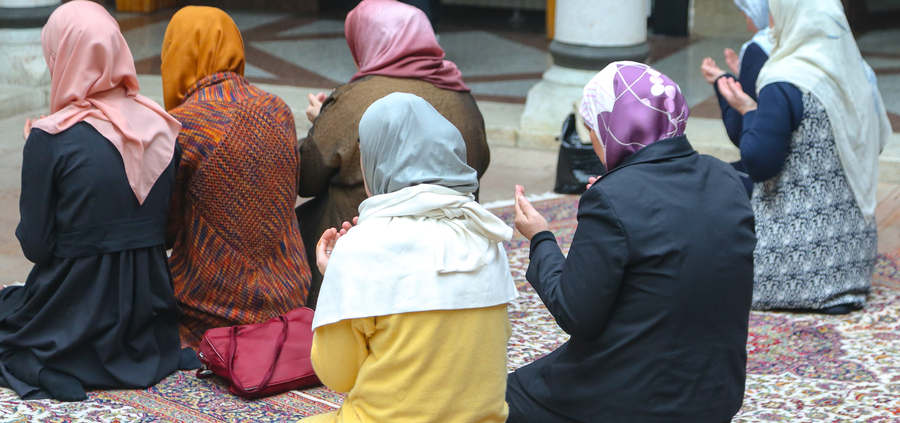What Does the Prophetic Narration “Only Four Women Have Reached Perfection” Mean?
Answered by Shaykh Yusuf Weltch
Question
I am really struggling with the hadith that says:
“كمل من الرجال كثير و لم يكمل من النساء إلى اربعة”
What is the kamal here? Why can’t women become perfect like men? Please help me out; the responses I found all said that Allah favored men with Prophethood, intellect, strength, etc. But don’t women go through many sacrifices and sufferings in life? Why can’t women also rise to that maqam? Please help me understand; I am sure there is a secret that I don’t understand.
Answer
In the Name of Allah, the Most Merciful and Compassionate.
There are a few narrations of this hadith. The most authentic of these narrations is the narration of Sahih al-Bukhari:
“Many men have reached a state of perfection, but amongst the women, only Maryam, the daughter of ‘Imran, and Asiya, the wife of the Pharoah, have attained perfection.” [Bukhari]
Regarding this narration, the scholars have mentioned a few interpretations:
- Only these specific women have reached perfection in each of their specific time periods.
- Only these specific women out of the previous nations have reached perfection.
- It is a metaphor signifying that it is less frequent due to the Prophets and Caliphs being men.
- These two women are Prophets of Allah (this is a minority opinion; most scholars disagreed with this). [Ibn Hajar, Fath al-Bari Sharh al-Bukhari]
In response to this final point, some scholars used this narration as proof that Maryam and Asiya were Prophets of Allah and that this narration refers to Prophethood.
This means that many men were given Prophethood, whereas (in this opinion) only a few women were given Prophethood. Even though this is a minority opinion, it is indeed interesting.
Contemporary Opinions
In a recent lecture series titled “Paradigms of Leadership,” Shaykh Abdal Hakim Murad mentioned this narration in his lecture on Sayyidatuna Hajar (Allah be pleased with her).
His explanation of this narration was that the four women mentioned were four archetypes of perfect women:
- Khadija bint Khuwaylid was an archetype for the strong, independent, sought-after woman who sacrificed everything for her family.
- Maryam bint ‘Imran was an archetype for the religiously devoted, chaste, unmarried, immensely spiritual woman.
- Asiya bint Muzahim was an archetype for the oppressed woman despite her circumstance.
- ‘Aisha bint Abi Bakr was the strong, independent, erudite, leader type.
Summary
This narration is in no way meant to detract from the potential of a woman. Even human being has the potential to attain the highest level of spirituality and nearness to Allah Most High, known as al-Siddiqiyya al-Kubra.
The only thing (according to the majority of scholars) that is unattainable is Prophethood. Prophethood is given only to those whom Allah Most High chooses. [Laqqani, Jawhara al-Tawhid]
Hope this helps
Allah knows best
[Shaykh] Yusuf Weltch
Checked and Approved by Shaykh Faraz Rabbani
Shaykh Yusuf Weltch teaches Arabic, Islamic law, and spirituality. After accepting Islam in 2008, he completed four years at the Darul Uloom Seminary in New York, where he studied Arabic and the traditional sciences.
He then traveled to Tarim, Yemen, where he studied for three years in Dar al-Mustafa under some of the most outstanding scholars of our time, including Habib Umar Bin Hafiz, Habib Kadhim al-Saqqaf, and Shaykh Umar al-Khatib.
In Tarim, Shaykh Yusuf completed the memorization of the Quran and studied beliefs, legal methodology, hadith methodology, Quranic exegesis, Islamic history, and several texts on spirituality. He joined the SeekersGuidance faculty in the summer of 2019.
